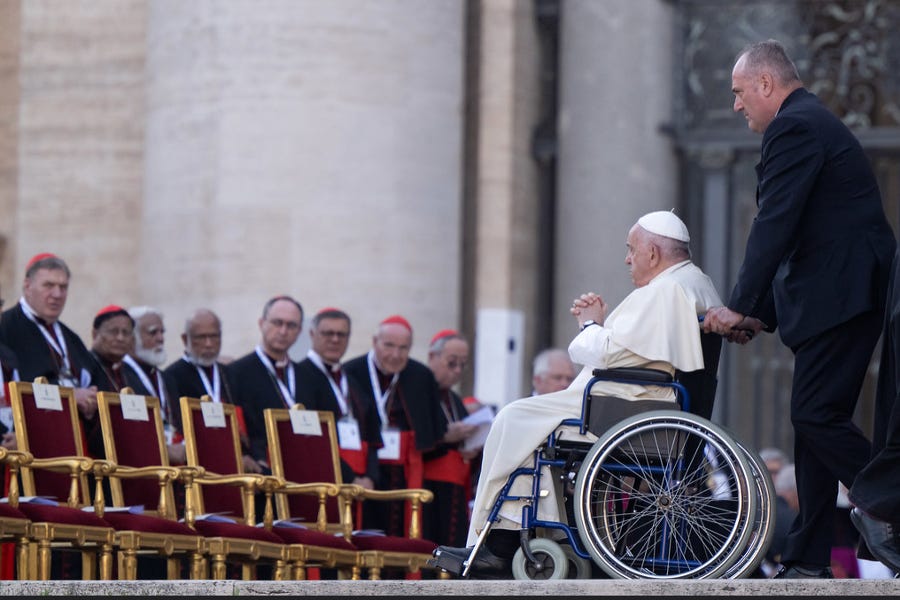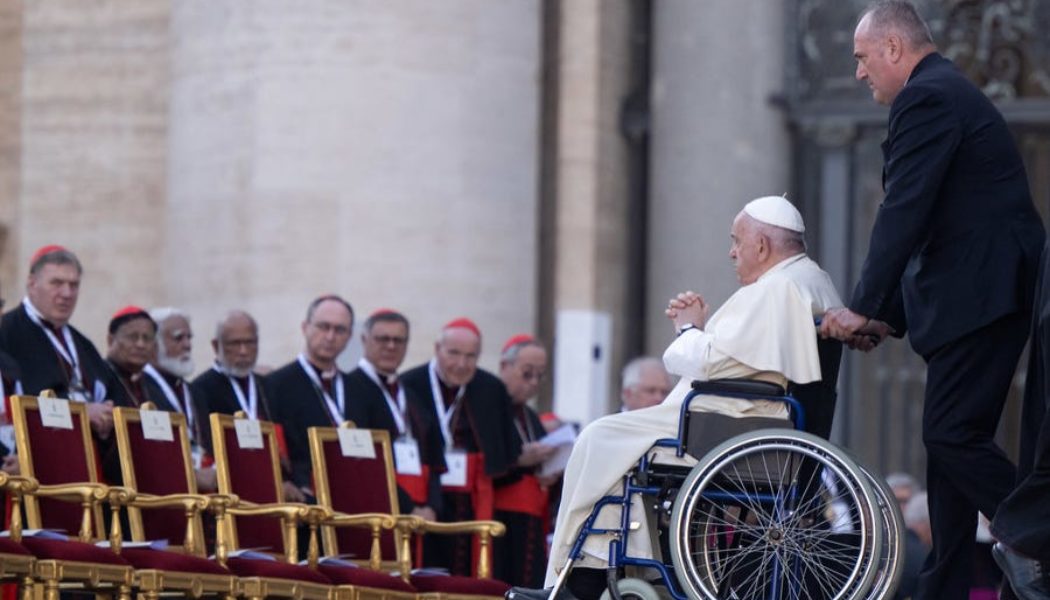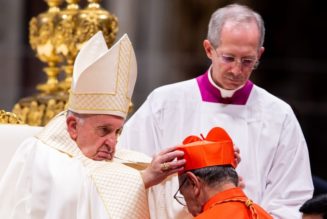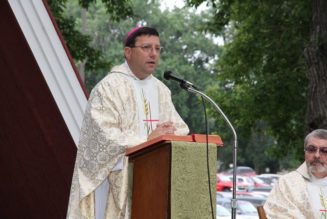Pope Francis cited principles in his 2016 exhortation Amoris laetitia Monday, in a note calling for the synod on synodality’s final document to be implemented in dioceses worldwide.

In a roughly 900-word text released Nov. 25, the pope stressed that the global synodal process didn’t end with the synod on synodality’s Oct. 27 closing Mass.
He announced that when bishops prepare reports ahead of their ad limina visits to Rome — which take place roughly every five years — they will need to explain how they have implemented the final document in their dioceses.
Reflecting on how local Churches should implement the synod’s resolutions, the pope said he wanted to repeat “with conviction” what he wrote in Amoris laetitia, a text issued at the end of the 2014-2015 family synods.
Citing the 2016 exhortation’s third paragraph, he said that “not all discussions of doctrinal, moral or pastoral issues need to be settled by interventions of the magisterium.”
“Unity of teaching and practice is certainly necessary in the Church, but this does not preclude various ways of interpreting some aspects of that teaching or drawing certain consequences from it,” said the pope. “This will always be the case as the Spirit guides us towards the entire truth … until he leads us fully into the mystery of Christ and enables us to see all things as he does. Each country or region, moreover, can seek solutions better suited to its culture and sensitive to its traditions and local needs.”
The citation followed the pope’s reaffirmation that the synod’s final document should be considered part of the ordinary papal magisterium.
“The final document will form part of the ordinary Magisterium of the Successor of Peter … and as such I ask that it be accepted,” Pope Francis wrote. “It represents a form of exercise of the authentic teaching of the Bishop of Rome, with some novel features but which in fact corresponds to what I had the opportunity to point out on Oct. 17, 2015, when I stated that synodality is the appropriate interpretative framework for understanding the hierarchical ministry.”
The pope was referring to an address marking the 50th anniversary of the institution of the Synod of Bishops, in which he described synodality as “a constitutive dimension of the Church” and said it offered a “more appropriate interpretive framework” to understand the Church’s hierarchical ministry.
In his new note, signed Nov. 24, the Solemnity of Christ the King, Pope Francis recalled that when he approved the synod’s final document Oct. 26, he said the text was “not strictly normative” and its application would “require several forms of mediation.”
“This does not mean that it does not commit the Churches as of now to make decisions coherent with its indications,” he said. “The local Churches and Church groupings are now required to implement, in the various contexts, the authoritative indications contained in the document, through processes of discernment and decision-making envisaged by law and by the document itself.”
The pope underlined that the contentious issues entrusted between the synod on synodality’s first and second sessions to 10 “study groups” needed to be considered at greater length.
The groups are expected to report to the pope in 2025 on topics such as women deacons, criteria for selecting bishops, and “shared discernment of controversial doctrinal, pastoral, and ethical issues.”
Pope Francis said that other topics could be added to the present 10, “in view of the necessary decisions.”
But the pope also noted that the final document included provisions dioceses and regional Church bodies could take up immediately.
“In many cases, it is a matter of effectively implementing what is already provided for by existing law, both Latin and Eastern,” he wrote. “In other cases, it will be possible to proceed, through a synodal discernment and within the framework of the possibilities indicated by the final document, to the creative activation of new forms of ministeriality and missionary action, experimenting, and subjecting experiences to verification.”
“New forms of ministeriality” likely refers to a section of the final document asking local Churches to discern which charisms found among lay people require “a ministerial form.”
“Not all charisms need to be configured as ministries, nor do all the baptized need to become ministers, nor do all ministries need to be instituted,” the document said. “For a charism to be configured as a ministry, the community must identify a genuine pastoral need. This should be accompanied by a discernment carried out by the pastor, who, together with the community, will make a decision on whether there is a need to create a new ministry.”
In the note, the pope said that the “implementation phase” of the synodal process would be overseen by the General Secretariat of the Synod, the Vatican body that organized the synod on synodality, and the departments of the Roman Curia.
Comments 7
Services Marketplace – Listings, Bookings & Reviews




